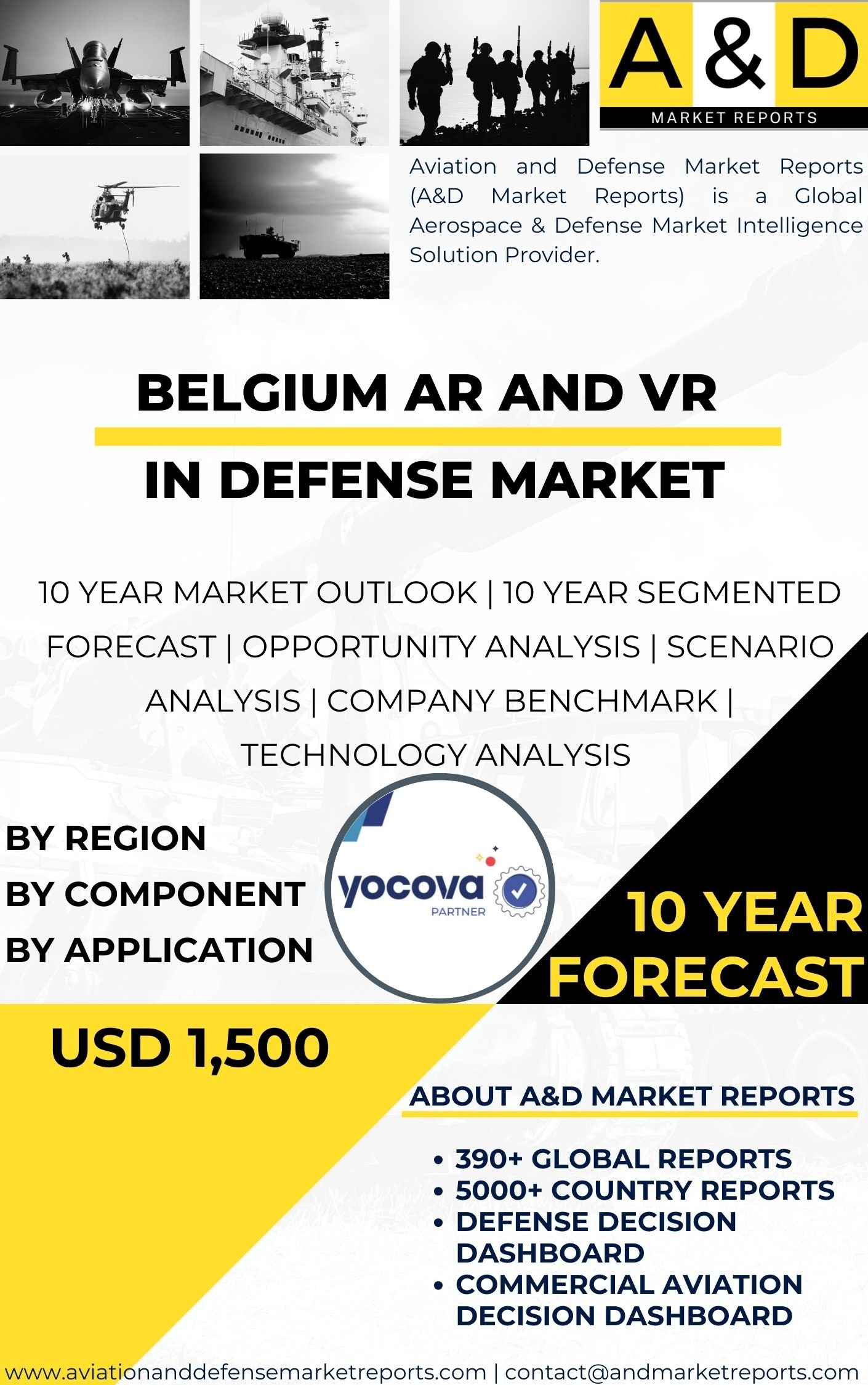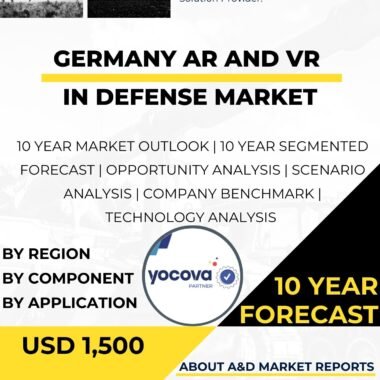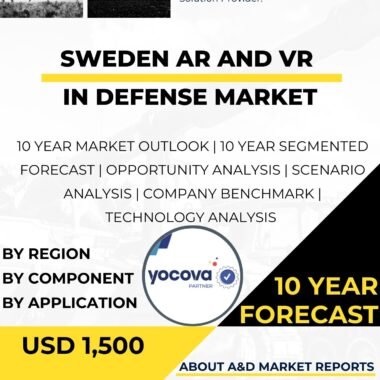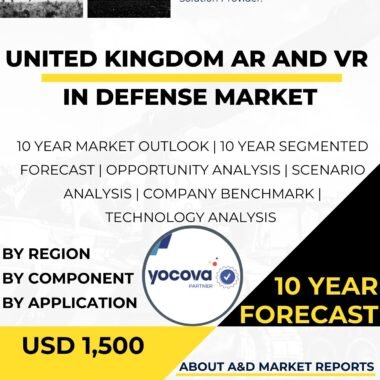Description
Belgium AR & VR in Defense Market
The Belgium AR & VR in Defense Market is a significant segment within the country’s defense industry. AR and VR technologies are revolutionizing the way defense organizations train personnel, conduct simulations, enhance situational awareness, and improve decision-making processes. Belgium recognizes the potential of these technologies to enhance its defense capabilities and contribute to the modernization of its armed forces.
The primary driver for the Belgium AR and VR in defense market is the need for effective training and simulation solutions. AR and VR technologies provide immersive and realistic training environments that allow personnel to practice and refine their skills in a safe and controlled setting. Belgium’s armed forces can benefit from these technologies to train soldiers, pilots, and other personnel in a wide range of scenarios, including combat operations, emergency response, and maintenance procedures.
AR and VR technologies also enhance situational awareness and decision-making processes. By overlaying relevant information and data onto the real-world environment, AR enables military personnel to access critical information in real-time, enhancing their understanding of the battlefield and improving their decision-making capabilities. VR, on the other hand, allows commanders and decision-makers to visualize complex scenarios and test different strategies before executing them in the field. These technologies enable Belgium’s defense forces to achieve a higher level of readiness and operational effectiveness.
Belgium’s domestic defense industry plays a crucial role in the development and integration of AR and VR technologies. Belgian companies, such as Barco, FN Herstal, and Thales Belgium, have expertise in defense technologies and contribute to the research, development, and manufacturing of AR and VR solutions. These domestic capabilities foster innovation, create job opportunities, and contribute to the economic growth of the Belgium AR and VR in defense market.
Collaborations with international partners and suppliers are also significant for the Belgium AR and VR in defense market. Belgium often engages in partnerships with defense companies and research institutions from NATO member states and other allied nations to access cutting-edge technologies, share expertise, and participate in joint development projects. These collaborations enable Belgium to leverage global advancements in AR and VR technologies and enhance its defense capabilities.
Furthermore, Belgium’s participation in international defense initiatives influences the AR and VR in defense market. Collaboration within NATO and other multinational defense programs fosters interoperability, standardization, and the exchange of best practices in the application of AR and VR technologies. This cooperation ensures compatibility and enhances the ability to conduct joint military operations with allied forces.
The Belgium AR and VR in defense market face challenges such as technological advancements, cost considerations, and data security. Technological advancements in AR and VR, including improvements in display resolution, tracking accuracy, and real-time data integration, require continuous research and development efforts. The Belgium market needs to stay at the forefront of innovation to provide state-of-the-art AR and VR solutions that meet evolving defense requirements.
Cost considerations can influence the adoption and integration of AR and VR technologies. Belgium, like other nations, must allocate resources carefully and balance competing defense priorities. The cost of developing and implementing AR and VR solutions, including hardware, software, and training, can be significant. However, advancements in technology and economies of scale are gradually making these technologies more accessible and cost-effective.
Data security is also a critical aspect of AR and VR in defense applications. The use of these technologies involves the collection and transmission of sensitive data, including classified information and personal data. Belgium’s defense forces must ensure the confidentiality, integrity, and availability of this data, employing robust cybersecurity measures to protect against unauthorized access and potential cyber threats.
In conclusion, the Belgium AR and VR in defense market is a significant segment within the country’s defense industry. AR and VR technologies provide innovative solutions for training, simulation, situational awareness, and decision-making processes. Domestic capabilities, collaborations with international partners, and Belgium’s participation in international defense initiatives drive the growth and development of the AR and VR in defense market. As defense requirements evolve and technological advancements continue, the demand for advanced AR and VR solutions is expected to increase, fostering innovation, collaboration, and economic growth within the sector.




